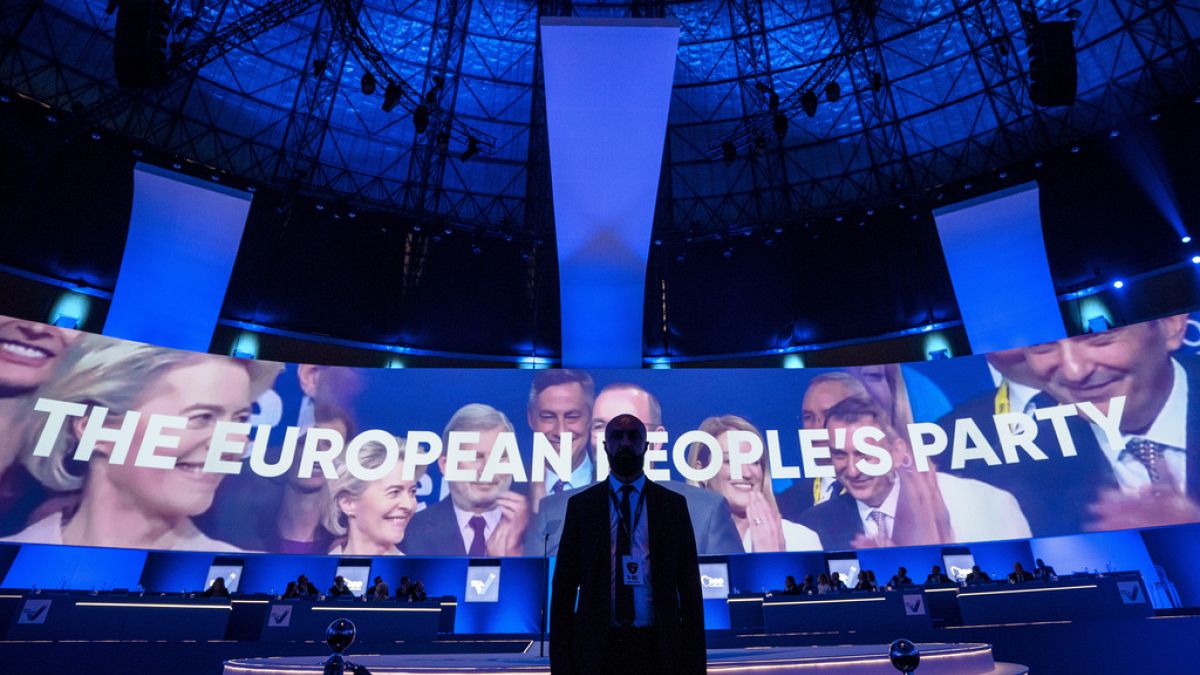New Jersey
NHL’s cowardly decision to ban cause-themed jerseys sends wrong message

The NHL took the path of least resistance in banning cause-themed jerseys from warmups and in doing so turning Hockey Fights Cancer into collateral damage from Pride Night.
We’re told that the decision rendered by the Board of Governors on Gary Bettman’s recommendation was reached without input from or consultation with the NHLPA.
The players should have had a voice.
Intellectually, I get it. The NHL’s efforts were boomeranging. The only league to provide players with Pride-themed jerseys for pregame activities was being bashed by activists and across much of the media landscape for providing safe harbor to bigots when a tiny minority of athletes opted out of wearing them.
The focus had been trained on the handful of guys who did not wear the jersey rather than the hundreds who did. Teams and the league were being attacked for not suspending or discipling the holdouts, who were exercising their own personal rights. All publicity is most certainly not good publicity.
I get it. I get that the league is trying to extricate itself from the culture wars that permeate our society, but this response is cowardly.
When the going got tough, the NHL high-tailed it. The league waved the white flag. Minority ruled. This surely represents a step back even if Pride Nights will continue around the league. It sends a horrible message to those in the LGBTQ+ community who play the game at any level and have an emotional investment in the sport.
“Hockey Is for Everyone” sounds like an empty slogan.
If the Devils believe that Rangers-killer Akira Schmid is the real thing, then by all means the club should save the multi-millions it would take to acquire Connor Hellebuyck from Winnipeg then sign the elite 30-year-old goaltender to a long-term extension.
There may be no greater luxury than having a No. 1 goaltender operating under an $850,833 salary-cap hit as the 23-year-old Schmid will this year. But that’s if the Devils are sure about the Swiss. That’s if executive VP of hockey operations Martin Brodeur is sure.
Yes, Adin Hill.
Counterpoint: Sergei Bobrovsky rescuing the Panthers after starting the playoffs with Alex Lyon.
So Trevor Zegras, Mason McTavish and prospective second-overall Adam Fantilli, and you tell me which of these natural centers is going to be a fit on Anaheim’s third line.
If the selection committee has adopted a policy, unwritten or otherwise, not to induct Russians into the Hockey Hall of Fame until further notice, then perhaps one of the 18 persons who comprise the panel might want to clue the rest of us in on it.
In the alternative, those who are conducting a vendetta against Alexander Mogilny should do the decent thing and identify himself/herself/themselves.
The ongoing snub of the great and historically significant Mogilny seems personal. It is unaccountable. Of course there is no accountability on the selection committee that does its work in the dark. This is not unique in recent history, the committee having cruelly withheld election of Pat Burns until the coach had passed away.
Precedent, however, cannot camouflage the stink.
I came across a clip from 2020 in which selection committee member Brian Burke, one of those old guard NHL guys who seems to have his fingers in everything, talked about Mogilny in an interview with SportsNet. Burke was careful to say that, under rules of confidentiality, he could not talk specifically about Mogilny while of course talking specifically about Mogilny.
Burke’s take was that — though there are other factors taking into consideration such as team performance, Stanley Cup, major awards and an international résumé, there were 14 players ahead of Mogilny in career points who were not in the Hall. He mentioned that twice.
So when do Vincent Damphousse, Ray Whitney and Bobby Smith — three of those who accumulated more points than No. 89 — get in?
I first wrote about the under-representation of goaltenders in the Hall of Fame in November 2015. At that time, just four goaltenders who’d played the bulk of their careers following the 1979 NHL-WHA merger had been selected for induction.
There has, however, been a course correction in the interim with six such goaltenders elected. That includes the Class of ’23 that features Henrik Lundqvist, Mike Vernon and Tom Barrasso.

Barrasso has the numbers and he has the back-to-back Cups with the Penguins in 1991 and 1992, but his out-of-left-field selection might open the door a crack for fellow American, Mike Richter, who doesn’t quite match his career counting stats but surely is at least his equal in stature.
Richter is one of the greatest money goalies of the post-Original Six Era, turning in legendary performances in the 1994 Stanley Cup run that represents the Rangers’ only title in 83 years and the 1996 World Cup championship that marks Team USA’s only title ever in an international best-on-best tournament.
He is in a group featuring Patrick Roy, Billy Smith, Ken Dryden, Bernie Parent, Grant Fuhr and Dominik Hasek. These half-dozen are all in the Hall of Fame. Richter is a long-shot, properly so with just 301 career victories that ranks 38th on the all-time list, but Eddie Giacomin is in with 290.
Barrasso’s ability to handle and pass the puck was considered revolutionary back in the day. Until, of course, Rick DiPietro came along. Isn’t that right, Mike Milbury?

New Jersey
N.J. declares state of emergency for entire state due to snow, winter storm Sunday
A state of emergency has been declared for New Jersey starting at 8 a.m. Sunday due to a winter storm expected to hit parts of northern New Jersey with 6 to 8 inches of snow.
Gov. Phil Murphy made the announcement Saturday night ahead of the storm, which is expected to start Sunday morning and continue all day.
The state of emergency is statewide. Most of northern New Jersey will see at least 4 inches of snow, according to the weather service.
Winter weather warnings have been issued for parts of eight counties – Bergen, Essex, Hunterdon, Morris, Passaic, Sussex, Union and Warren. Parts of 10 counties are also under lesser winter weather advisories.
Snowfall rates of more than 1 inch per hour are expected Sunday afternoon at the peak of the storm.
The National Weather Service issued an updated snowfall forecast map Saturday afternoon with predictions of 6 to 8 inches of snow expected across much of northern New Jersey.National Weather Service
“Beginning tomorrow morning, we are expecting a winter storm to bring heavy snow, followed by dangerously low temperatures expected on Monday and continuing through Wednesday,” Murphy said in a statement Saturday night. “As always, I urge all New Jerseyans to use caution, follow all safety protocols, and remain off the roads unless absolutely necessary.”
In addition to the state of emergency, the New Jersey Department of Transportation has issued a commercial vehicle travel restriction on multiple interstate highways across the state beginning Sunday at 9 a.m.
The restriction will be in place until further notice in both directions for I-76, I-78, I-80, I-195, I-280, I-287, I-295, I-676 and NJ Route 440, from the Outerbridge Crossing to I-287.
The latest forecast map issued by the National Weather Service shows a wide area of 6 to 8 inches of snow expected in northwestern New Jersey. There’s a chance for 10 inches in some spots in Sussex County.
Lower snowfall totals are expected southern New Jersey, where rain could mix with freezing rain and snow.
States of emergencies do not ban people from the roads or require them to shelter in place. Instead, they allow the state to organize its emergency response, trigger laws to prevent price gouging, and more.

Thank you for relying on us to provide the local weather news you can trust. Please consider supporting NJ.com with a voluntary subscription.
New Jersey
Surprising reason why this Democrat is attending Trump’s inauguration
At least one big-name New Jersey Democrat will travel to D.C. for Donald Trump’s inauguration Monday.
Gov. Phil Murphy said he will be on hand to watch Trump take the oath of office a second time. That‘s even as several other top members of his party from across the country are skipping the event.
Murphy this week was asked to explain his decision compared to Democrats who feel their attendance would validate the Republican former and future president over Jan. 6 and other polarizing views and policies.
The governor said what convinced him to go was Joe Biden’s inauguration in 2020. Murphy said he and First Lady Tammy Murphy went and were surprised to see who was among the crowd.
“It was socially distanced, so it was not like your normal tableau,” Murphy told reporters at the Statehouse in Trenton on Monday. “We were struck by the amount of Republican governors who showed up. And not just by how many but who they were. Kristi Noem (of South Dakota), Doug Burgum (of North Dakota), Doug Ducey (of Arizona), Asa Hutchison (of Arkansas).
“It’s the right thing to do no matter all of the challenges and issues with Trump … and frankly, the big one to me is I just can’t believe the American people have given him a pass on denying that he lost four years ago. Still, I believe with all my heart it is still the right thing to do for the country and for the office.”
Democrats have cited numerous reasons for ditching Trump’s swearing-in Monday, whether it being the lingering uneasiness of Jan. 6, because the event is being held on Martin Luther King Day, or out of fear for their safety. Others have not said why they won’t be there.
The inauguration, usually held outside the U.S. Capitol, will instead be inside Monday because of freezing temperatures.
Murphy and Trump have long had a kind of love-hate relationship. The governor has repeatedly criticized Trump and fought his policies on immigration, guns, and taxes in court.
Still, the two collaborated on COVID-19 response and the Gateway Tunnel project during Trump’s first term. Murphy also visited Trump at his Bedminster golf club last summer after the assassination attempt on the ex-president. Then, after Trump won back the White House in November — and performed better than expected in blue New Jersey — Murphy said he got a phone call from Trump.
Murphy notes by the time he leaves office next January, he is the Democratic governor who will have served the longest under a Trump presidency, coming into office a year into Trump’s first term and exiting a year into his second.
That, Murphy argues, gives him a good perspective on how to handle Trump, even as Democrat sound alarms over what may happen to undocumented immigrants and reproductive rights under his new tenure. The governor has said he will “fight like hell” against Trump on some issues and try to find “common ground” on others.
That’s similar to stances that other Democratic governors have taken on Trump, who is famous for enjoying praise as much as he enjoys dishing out insults.
“I will never back away from partnering with the Trump administration where our priorities align,” Murphy said Tuesday during his latest State of the State address. “But just as importantly, I will never back down from defending our New Jersey values — if and when they are tested.”
To that end, Murphy said during the speech New Jersey will join other blue states in stockpiling a supply of medication used in abortions.
Thank you for relying on us to provide the local news you can trust. Please consider supporting NJ.com with a voluntary subscription.
Brent Johnson may be reached at bjohnson@njadvancemedia.com. Follow him on X at @johnsb01.
New Jersey
New Jersey Titans pull ahead in the third to defeat Maryland Black Bears – The Rink Live

The New Jersey Titans were victorious against the Maryland Black Bears on Friday, Jan. 16, 2025 at Middletown Ice World Arena.
After two periods, the teams were tied at 0, but New Jersey pulled away in the third, winning the game 2-0.
The Titans first took the lead early in the third period, with a goal from Owen Leahy, assisted by
James Schneid
and
Blake Jones
.
The Titans increased the lead to 2-0 with 52 seconds remaining of the third after a goal from James Schneid, assisted by
Nikita Meshcheryakov
and
Ryan Friedman
.
Next up:
The teams play again on Saturday, Jan. 18, 2025 at 6 p.m. CST at Middletown Ice World Arena.
Read more NAHL coverage
Automated articles produced by United Robots on behalf of The Rink Live.
-
/cdn.vox-cdn.com/uploads/chorus_asset/file/25822586/STK169_ZUCKERBERG_MAGA_STKS491_CVIRGINIA_A.jpg)
/cdn.vox-cdn.com/uploads/chorus_asset/file/25822586/STK169_ZUCKERBERG_MAGA_STKS491_CVIRGINIA_A.jpg) Technology1 week ago
Technology1 week agoMeta is highlighting a splintering global approach to online speech
-

 Science1 week ago
Science1 week agoMetro will offer free rides in L.A. through Sunday due to fires
-
/cdn.vox-cdn.com/uploads/chorus_asset/file/23935558/acastro_STK103__01.jpg)
/cdn.vox-cdn.com/uploads/chorus_asset/file/23935558/acastro_STK103__01.jpg) Technology1 week ago
Technology1 week agoAmazon Prime will shut down its clothing try-on program
-

 News1 week ago
News1 week agoMapping the Damage From the Palisades Fire
-
/cdn.vox-cdn.com/uploads/chorus_asset/file/25826211/lorealcellbioprint.jpg)
/cdn.vox-cdn.com/uploads/chorus_asset/file/25826211/lorealcellbioprint.jpg) Technology7 days ago
Technology7 days agoL’Oréal’s new skincare gadget told me I should try retinol
-
/cdn.vox-cdn.com/uploads/chorus_asset/file/25832751/2192581677.jpg)
/cdn.vox-cdn.com/uploads/chorus_asset/file/25832751/2192581677.jpg) Technology3 days ago
Technology3 days agoSuper Bowl LIX will stream for free on Tubi
-

 Business5 days ago
Business5 days agoWhy TikTok Users Are Downloading ‘Red Note,’ the Chinese App
-
/cdn.vox-cdn.com/uploads/chorus_asset/file/25835602/Switch_DonkeyKongCountryReturnsHD_scrn_19.png)
/cdn.vox-cdn.com/uploads/chorus_asset/file/25835602/Switch_DonkeyKongCountryReturnsHD_scrn_19.png) Technology1 day ago
Technology1 day agoNintendo omits original Donkey Kong Country Returns team from the remaster’s credits



















